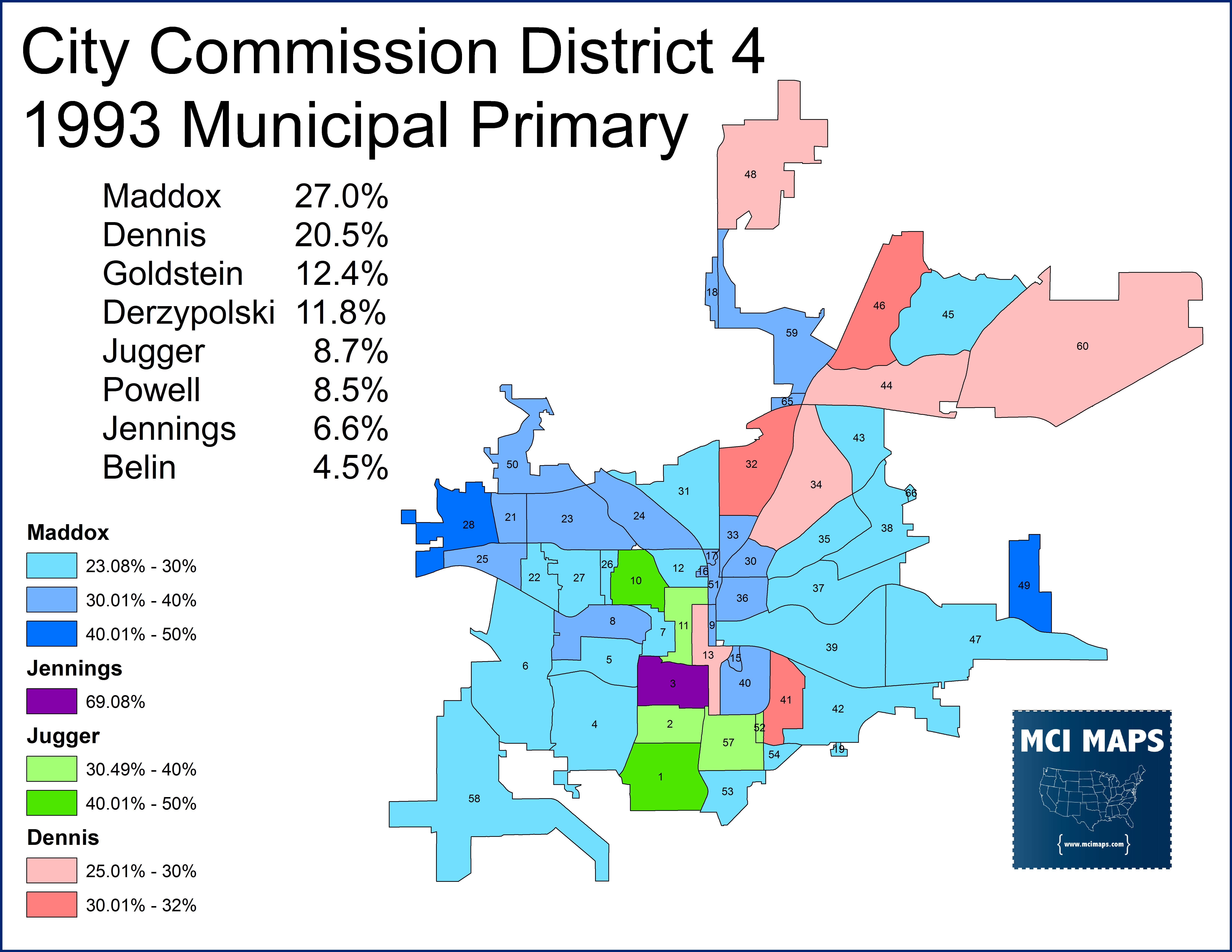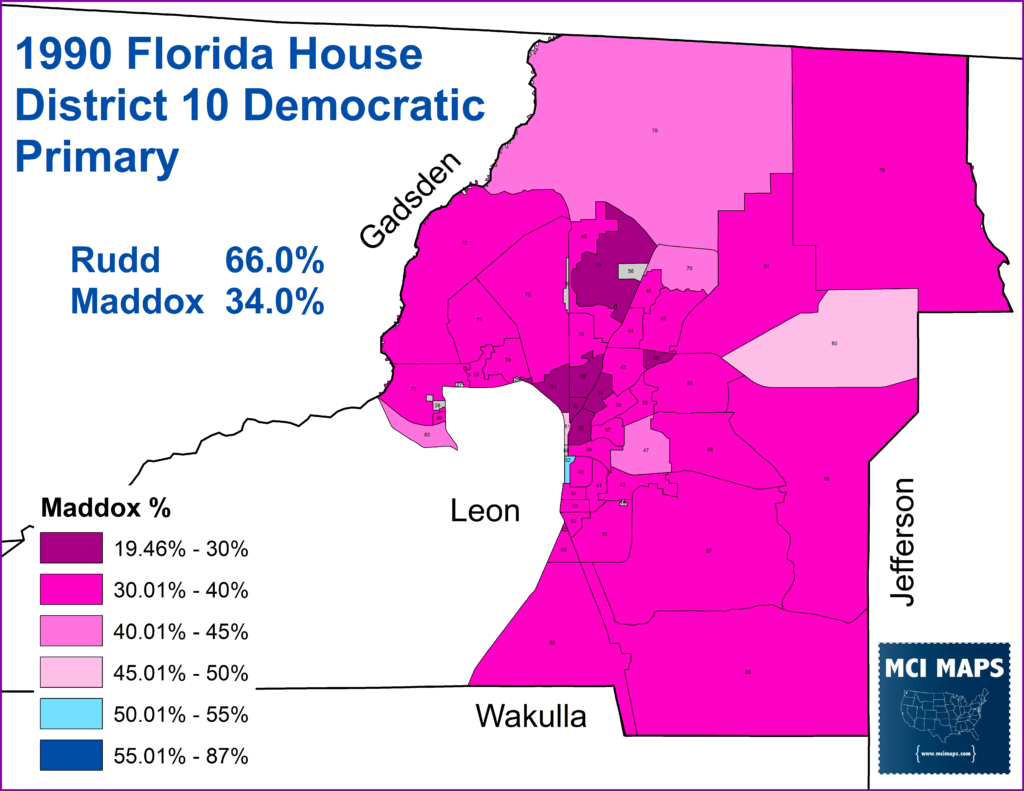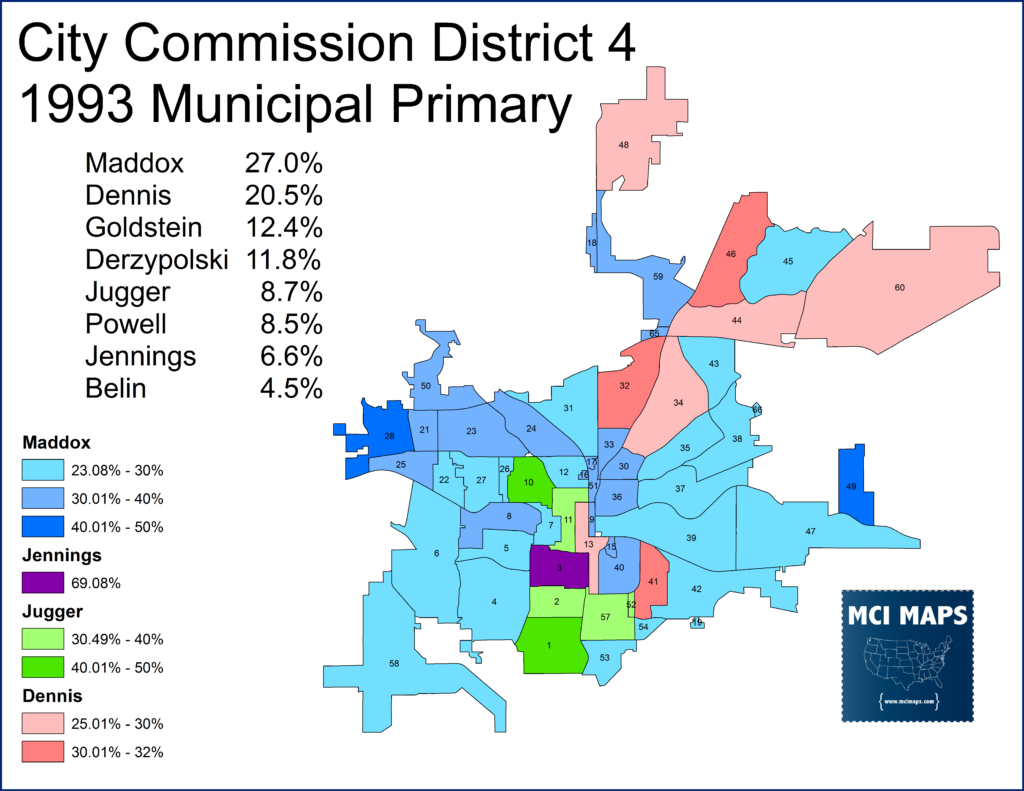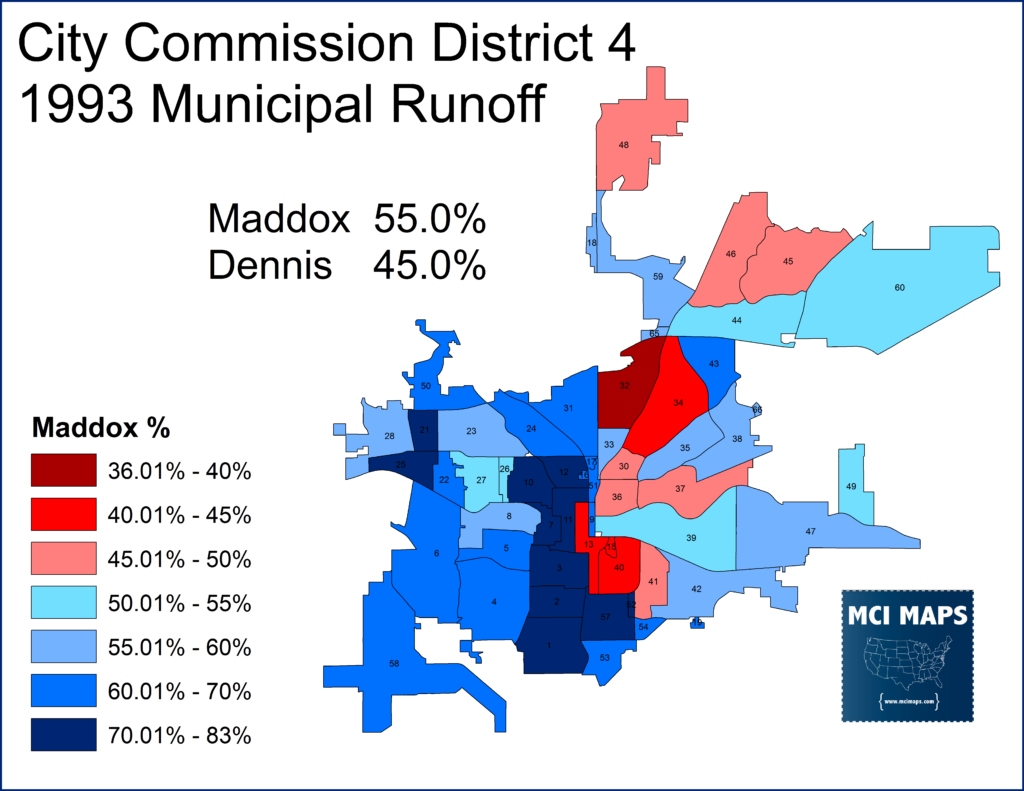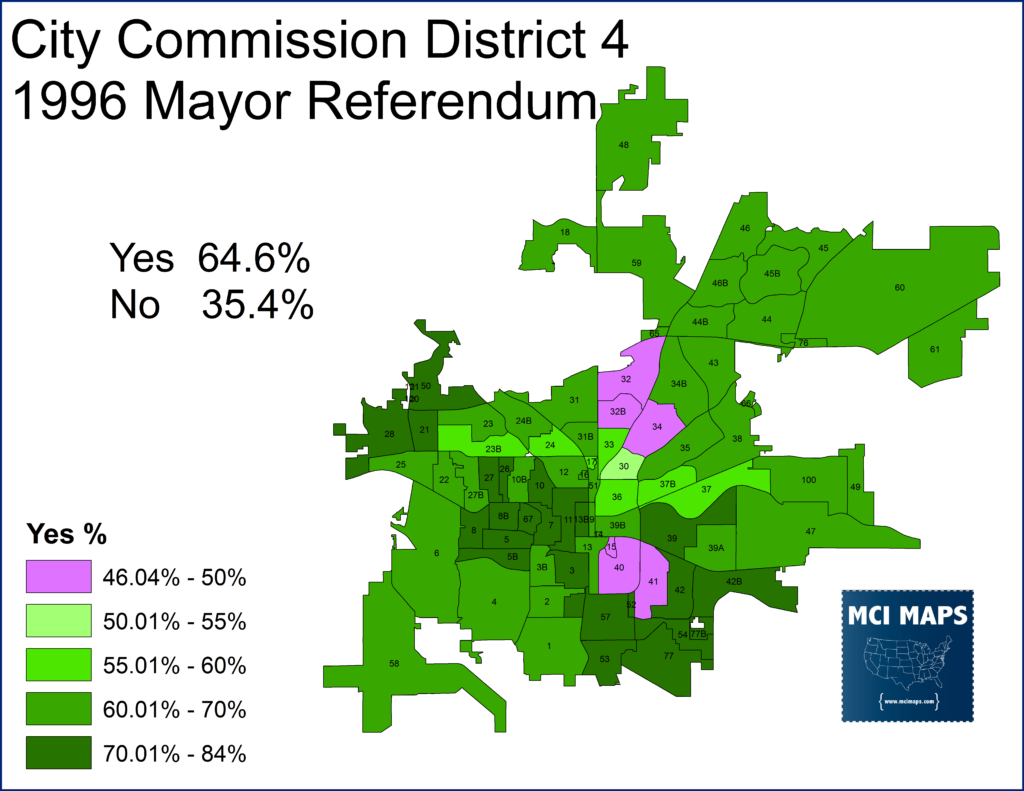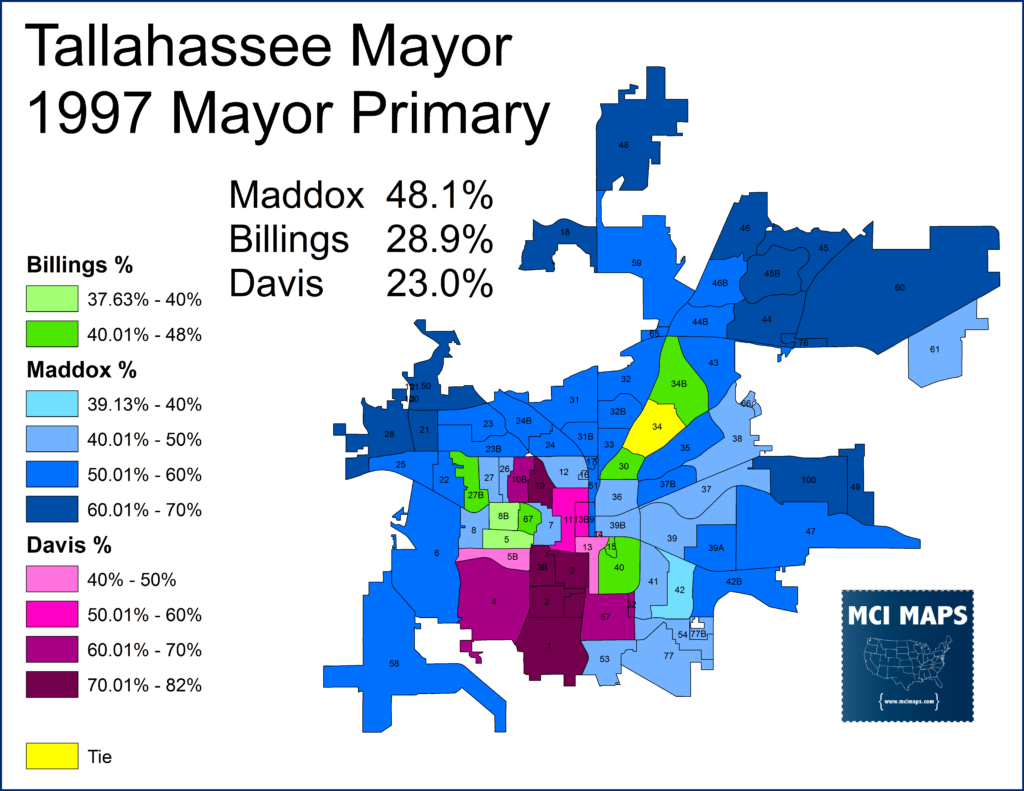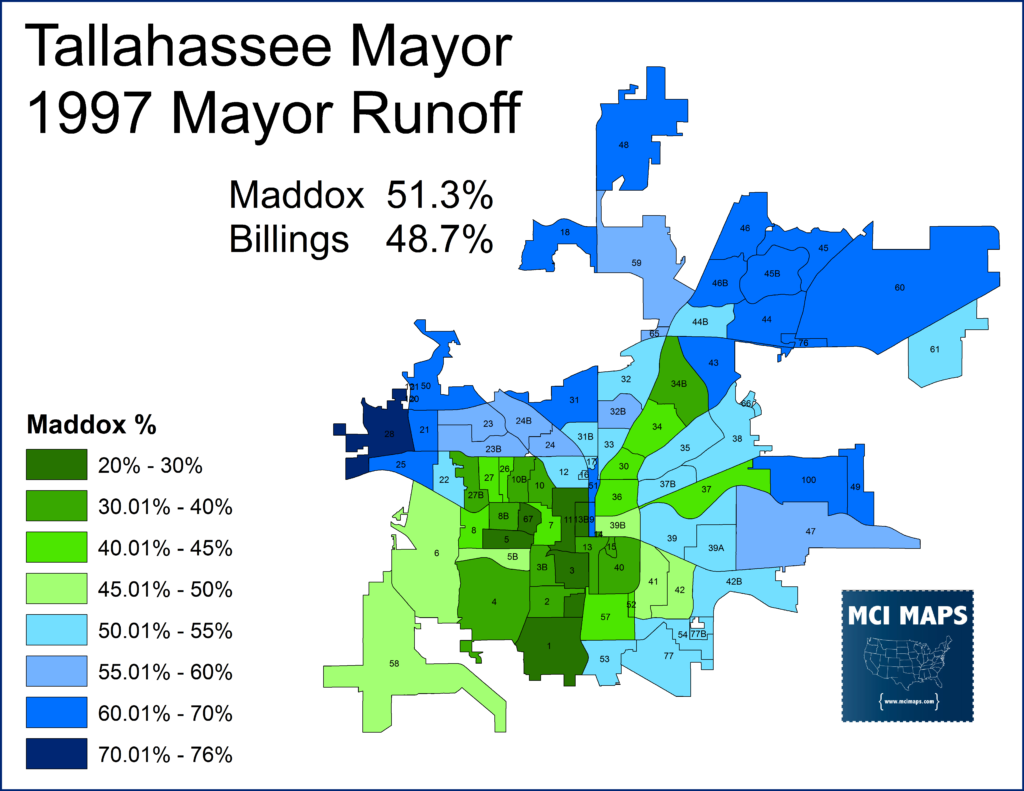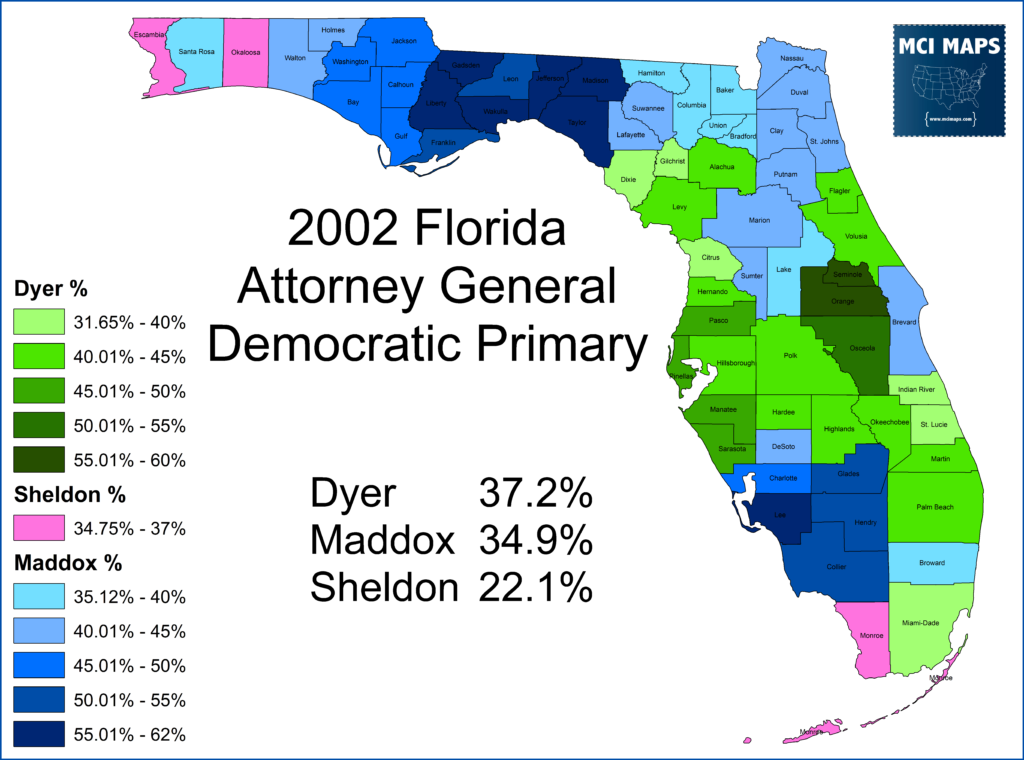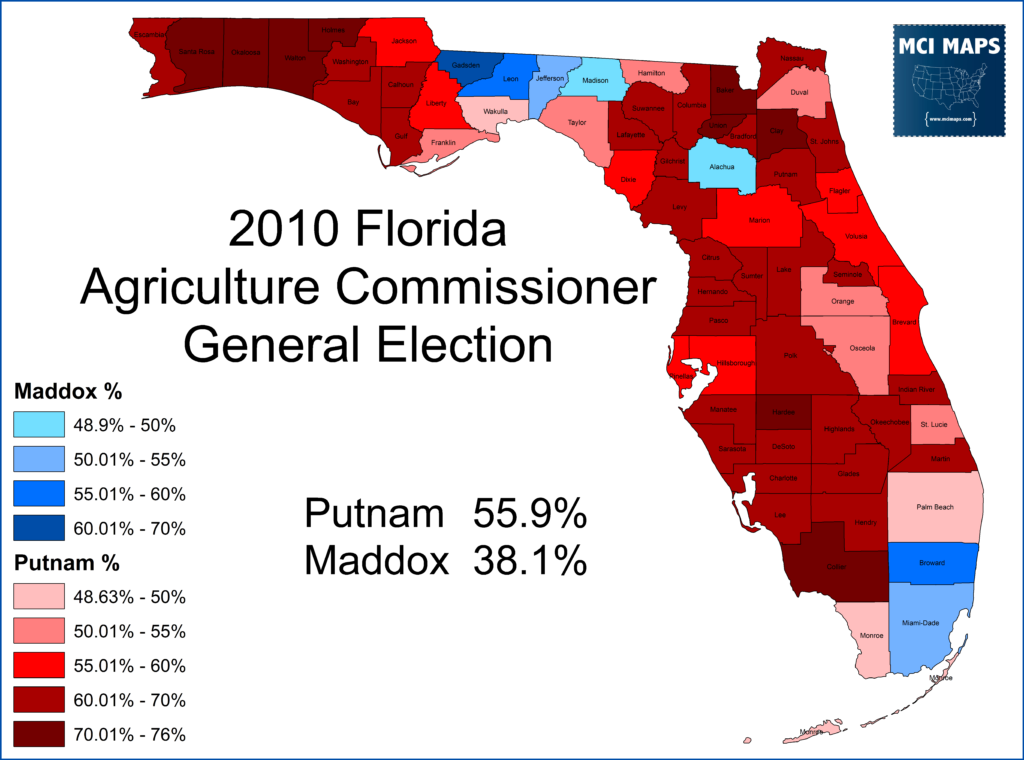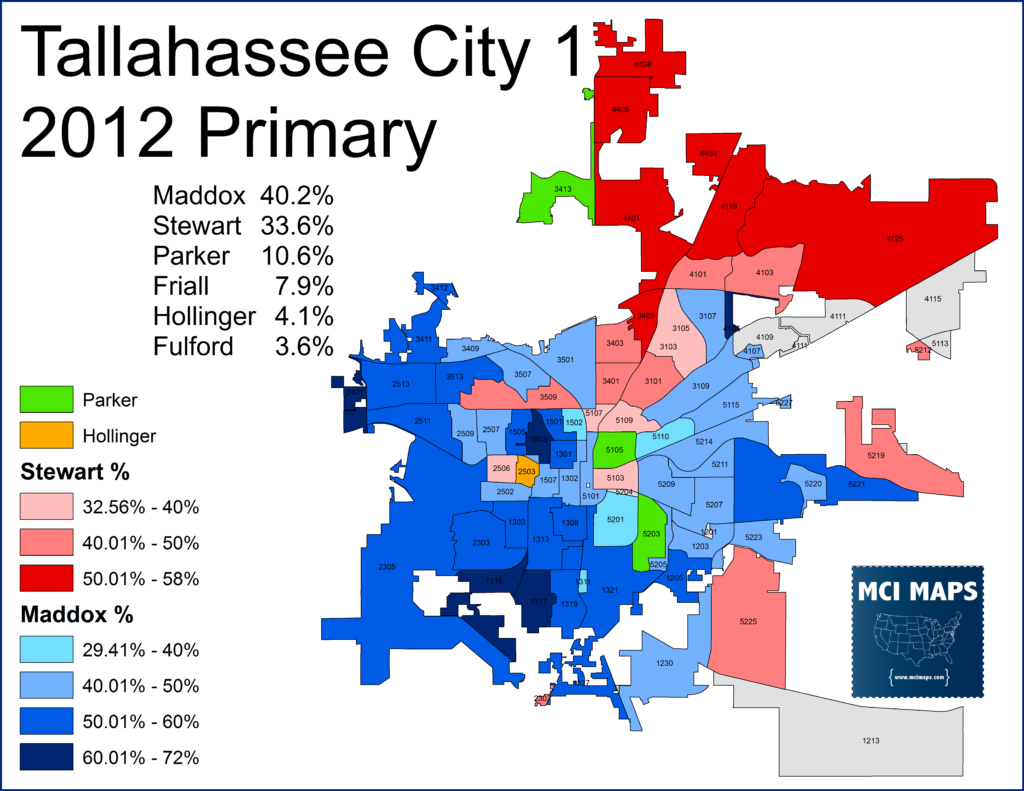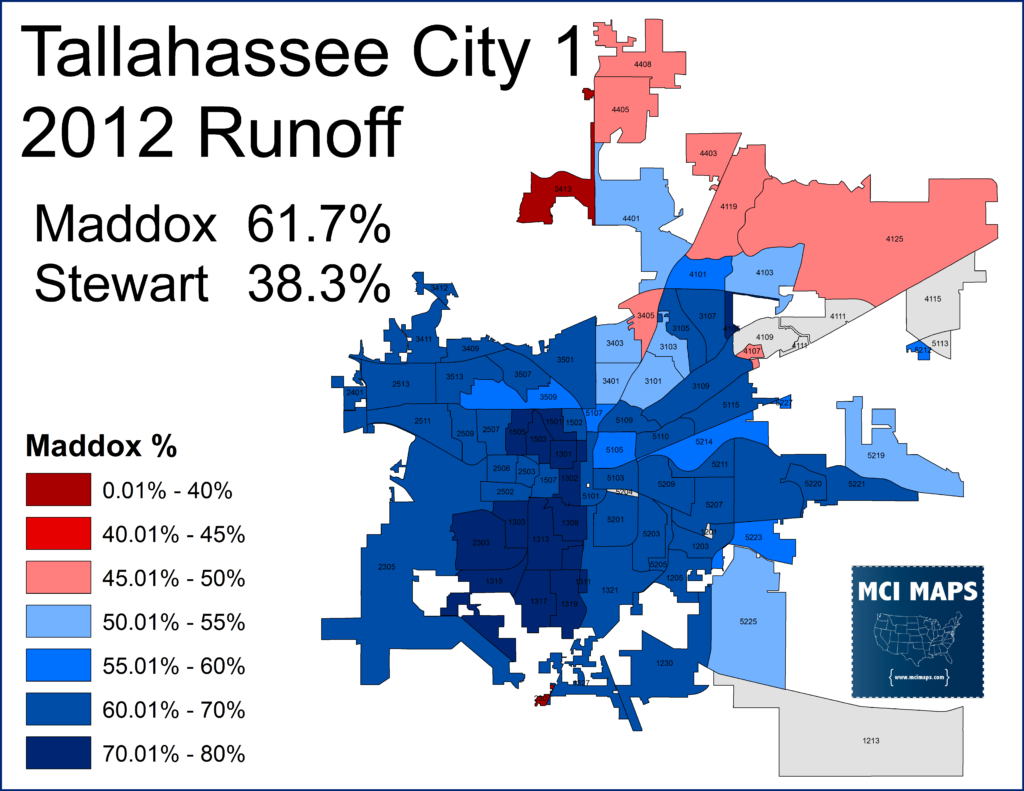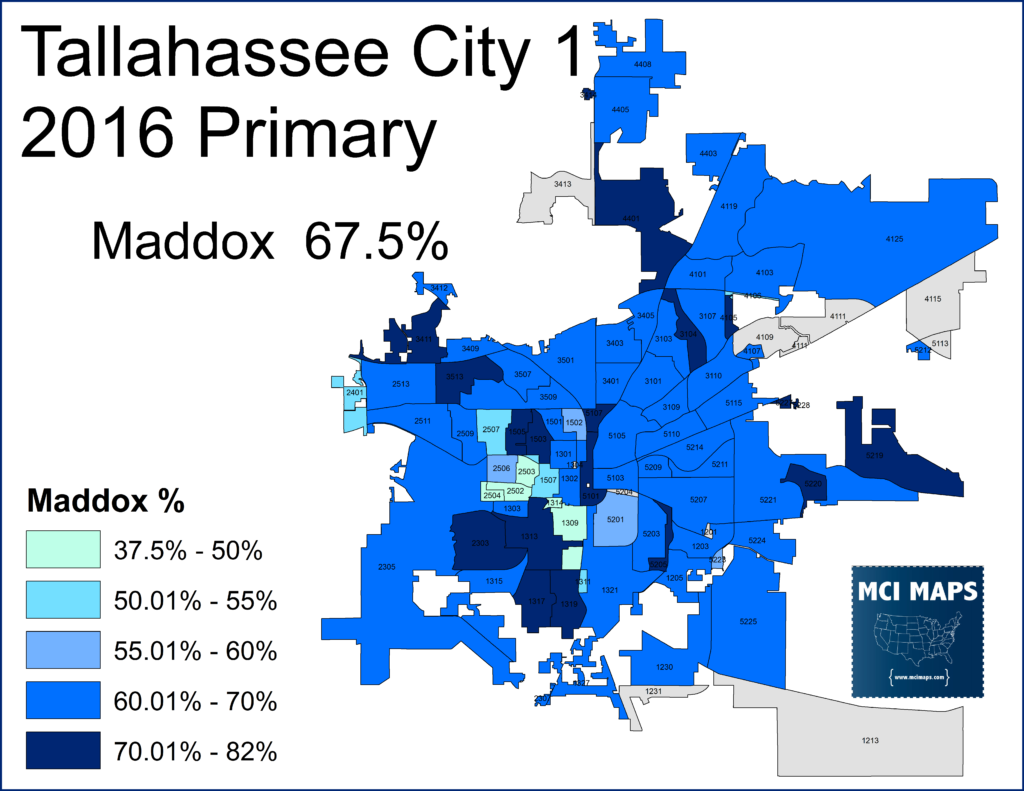Last week, Tallahassee war rocked by the news that Scott Maddox, a longtime fixture in local politics, was indicted by the FBI on 44 criminal counts. The charges range from extortion, bribery, racketeering, and falsifying documents. The indictment lays out how Maddox used his position and votes to steer money to a consulting firm he and his longtime aid, Paige Carter-Smith, ran. Maddox has long claimed he was no longer tied to the firm, known as Governance Inc, but records show he benefited from its success. Developers and other people relying on Maddox’s votes would be directed to give money to the firm and those on the outs with Maddox would be able to buy their way back into good graces with payments to Governance.
Maddox insists on his innocence and claims no plea agreement will come. Color me skeptical on that front. In the meantime, Governor Rick Scott has suspended Maddox from his City Council position. As a result, the council plans to pick a new commissioner before the end of the month.
The man has been a longtime player in the Tallahassee political scene. A man who many grew to adore, while others grew to despise. Until the end he remained powerful thanks to strong donor ties and years of loyalty. In light of these developments, I decided to take a look back at the electoral career of Scott Maddox.
Start in Politics
Failure at First
Maddox comes from a political family. His father, Charles Maddox, founded the Florida Police Benevolent Association. The Maddox clan originally hails from Miami-Dade but Maddox spent his teenage years growing up in Tallahassee. Maddox’s first run for office came when he was only 22 years old. He opted to run against Incumbent Democratic State Representative Harley Rudd in the 1990 Democratic primary. Maddox ran aggressively against Rudd, arguing the longtime politician was not being a forceful advocate for the area and was too entrenched in the “good old boy network” of the legislature. Rudd touted his experience and argued Maddox’s run was fueled by the fact that Rudd hadn’t backed an increase to the the retirement credit for police officers – earning the ire of the PBA.
Maddox made a misstep in the campaign when he tried to use an image of what looked like Rudd sleeping at his desk at a 3am session of the Florida House. The image caught Rudd at a moment he was closing his eyes and stretch his neck – something backed up by the photographer. Maddox, knowing the truth, still ran with the issue by trying to claim Rudd was too old for the job. The tactic got him a large degree of push-back from the local paper and letters from voters.
In the end, Maddox’s arguments did not resonate with a majority of the district’s voters. Rudd had been a former commissioner, Mayor, and now a state Representative – he had the trust of the voters. Maddox lost by 32%, winning just one precinct.
Maddox did receive praise from the Tallahassee Democrat (the main paper for Tallahassee) for his run. He had shown passion and knew the issues. He had also managed to raise a healthy $60,000 for the run. It was predicted a future run could prove more fruitful.
Success in Local Politics
A new opportunity presented itself in 1993. Maddox opted to run for Tallahassee City Council District 4 (all districts are city-wide) – which was being left open by Bob Hightower. Maddox wound up being part of a field of EIGHT candidates. His name ID from the previous run and aggressive campaign style allowed him to secure a first place spot. Maddox broke fundraising records for the run (which was over $15,000 – crazy to think that used to be alot) and earned a long list of endorsements. He was still going to law school part-time at that point.
Maddox’s first round showing put him in a runoff with lawyer Craig Dennis. Maddox got the backing of Jugger and Belin in the runoff and worked to consolidate African-American support. He also secured the backing of the Leon County Democratic Party – which sited Maddox’s longtime activism in the party.
In the runoff, Maddox wound up securing a solid 10% win. Dennis tried to hit Maddox for his lack of real experience and ran an especially negative ad in the paper touting how he had been working while Maddox was still in the 2nd grade. The age-based attacks likely did not play well. Of course the irony here is how Maddox had used age-based attacks against Rudd just 3 years earlier.
Maddox’s strongest wins came in the African-American community while he lost of the the city’s prominent suburbs to Dennis.
Maddox’s election at age 24 made him the youngest commissioner in history. Two years later, he would be selected as Mayor, making him the youngest Mayor in history. At the time, mayor was selected from the five commissioners and was not individually elected.
The Boy Mayor
Maddox became known as the “Boy Mayor” in Florida political circles and was seen as a rising star in the Democratic party. As he got continued to build support in the community, he began to push to increase his power in the city.
Changing the Government
City policy was that the commissioners selected a mayor from the members and it changed every year. Maddox and many of his backers wanted to change this system. They pushed a referendum in 1996 to move to electing the Mayor separately from the commission.
Defenders of he then-current system said it ensured the City Manager would remain powerful and less susceptible to political posturing or favoritism. Advocates of change said the city manager system was good but having a duly-elected Mayor for a four year term would also provide the city more clear focus. The issue was heated, with many current and former commissioners weighing in, many opposing and some supporting. It was widely believed that Maddox would use the change to run for Mayor himself.
The referendum passed in the November 1996 elections with just under 65%. A few notable suburban communities: Indianhead, Meyers, Betton, and Waverly – opposed the measure.
1st Elected Mayor – Closer than Expected Campaign
The first Mayoral election took place in February of 1997. Maddox was considered the clear front-runner for much of the primary. He faced two opponents, both Democrats. Charles Billings, a political science professor at FSU; and Anita Davis, the former county commissioner. Both Davis and Billings were African-American. The Tallahassee Democrat endorsed Billings in the first round.
Both Billings and Davis had entered the race to ensure Maddox didn’t just walk into the post. Both had their appeal. Davis was a longtime politician for southside and was part of the successful fight in the 1980s to divide Leon County into single-member districts. Davis would go on to win the southside-based, majority-African-American district and served until she ran for Congress (losing a primary to Alan Boyd) the year before.
Billings, meanwhile, had some name ID from his columns in the Tallahassee Democrat. He had been one of the few African-Americans to oppose single-member districts and pushed for more activities that drew in people from the heavily white and heavily African-American communities. He led an annual Golf Tournament at Jake Gaither, a historic black community, that had folks come in from across the county.
Maddox got 48% in the first round and Billings came in 2nd. Davis was very strong in the areas around her commission district but had less appeal elsewhere. Billings did well in the African-American precincts and some of the suburbs.
The results were especially surprising – as Maddox raised over $90,000 for his bid while Billings had raised less than $5,000. Many speculated and talked of an anti-Maddox sentiment in the electorate. Maddox seemed too eager to be mayor and others worried of his maturity.
Maddox, sensing the risk, worked to make Billings unacceptable to residents in the suburbs. Billings had written about the constitutionality of the war on drugs and the city’s ban on strip clubs. Maddox used these writings to argue Billings favored both. Billings did fire back, hitting Maddox over his ambition and maturity level.
Maddox wound up winning with just 51%. He broke the fundraising record, raising $118,000 compared to Billings’ $18,000. He did especially well in the northside of town and suburbs further out from the city’s core. Billings did especially well in the African-American community, around the college campuses, and in suburbs like Betton (which likely was driven by anti-Maddox sentiment) and Indianhead (which leans much more liberal).
The election marked the first time a clear anti-Maddox sentiment existed in the electorate – or at least one strong enough to threaten him.
Once Mayor
Maddox used his newfound position to continue to raise his statewide profile. He worked to push modernization of the city, improve race relations, and put Tallahassee more on the map. While Tallahassee was the capital, it was long plagued with a reputation of being small city more defined by the universities or the capital. Tallahassee spent its first century as a small town but had seen large growth since WWII and its population and land mass were growing. His push for race relation improvements and his strong campaign skills helped him build a strong level of support in the African-American community. He made peace with Charles Billings, who was elected to the city council in 1998. Maddox was eventually named the head of the Florida League of Cities. This gave him a statewide platform to travel and get his name out in the press. By the late 1990s it was clear Maddox had ambitions for higher office.
Maddox was looking ahead to the 2002 elections for a statewide run. But first some maneuvering was done at the local level. In 1999, the commission voted to put their elections, normally done in the spring, on the same ballot as the normal August primaries and November generals. A few seats were slated to be up in 2000, while Maddox and commissioner Debbie Lightsey would be up in 2002. This instantly made Maddox’s mayoral term 5 years long. No drama really emerged from that – it was only a year longer than the normal 4.
However, a few years later, in the midst of Maddox’s statewide run for Attorney General, the commission voted to move the elections to the spring of 2003 – further extending the term. It was widely opined this was done to allow Maddox to run for Mayor again if he lost a statewide bid. At the same time, a potential Mayor candidate, John Marks, tried to have the property of his house annexed into the city to make him eligible to run. Maddox fiercely opposed this – forcing Marks to buy a new house in the city. It seemed clear Maddox wanted to leave himself an out if statewide office didn’t work out.
Rise in Statewide Profile
Run for Attorney General
It was clear for years that Maddox had statewide ambitions. By 2002 the speculation was at a fever pitch that he would run for statewide office. At one point it was speculated he would run for Governor. However, he opted to make a run for Attorney general. State Senate Buddy Dyer (future Orlando Mayor) was already running for the position. The race wound up being a four-way fight and Maddox wound up in 2nd place.
Maddox was especially strong around Tallahassee and in North Florida. His placement in the primary generated good reviews despite the loss. Dyer was considered the front-runner for much of the race.
Becoming Florida Party Chair
Maddox may have tried to run for Mayor again, but a different opportunity presented itself. The 2002 elections went poorly for Florida Democrats. Jeb Bush was re-elected in a landslide and Democrats held zero cabinet races for the first time in over a century. Republicans had control of redistricting for the first time that cycle and drew maps to maximize gains for their party. Two new congressional districts elected Republicans and Democratic Congresswoman Karen Thurman was drawn into a much together district; causing her to lose her re-election. Democrats sat at 39/120 state house seats and 14/40 state senate seats. The party faithful were angry and FDP Chair Bob Poe had a major target on his back.
The failures of 2002 really can’t be laid on just Poe’s shoulders. The national environment was good for Republicans, Florida was trending red, and the redistricting control ensured bad legislative results. However, many saw Poe’s management style, cold personality, and the weak fundraising as major problems that would prevent any comeback. Despite have two years left on his term, there were calls for Poe to step down from within the party.
Maddox quickly emerged as a strong candidate if Poe were to step down. By late November it was clear Maddox was willing to take the position. either in a special election for chair or as part of a no confidence push at the January 2003 FDP meeting. In order to qualify for Florida Democratic Party Chair, Maddox had to be chair of his local party or its committeeman (a rule still in place today). That first step was handled easily, and Maddox ran for and was elected Chairman of the Leon County Democratic Primary by acclimation in early December. Poe, seeing the writing on the wall, said he would step down. Maddox was the only name of note for the position and a great deal of enthusiasm existed. He was seen as the future of the party. He was picked to be the new chair with no drama at the January FDP meeting.
Maddox’s mayoral term ended in February of 2003 – which featured a multi-candidate race that ended with the election of Democrat John Marks – the very man Maddox had worked to stop.
Maddox’s tenure as Chair seemed to go well at first. The party secured a new permanent headquarters, replenished campaign coffers, and built up a permanent staff. Maddox’s tenure saw a good deal of rebuilding. However, the 2004 elections did not go well. George W Bush won the state by 5%, Bob Graham’s open Senate seat fell to the GOP, and democrats lost three more state house seats. The frustration caused Maddox to face a challenge for chair in December of 2004. He wound up easily winning re-election with over 80% of the delegate votes. The strongest argument for Maddox’s re-election was the rebuilding of the party (which had been on very shaky financial grounds after 2002). The election results caused concern, but delegates felt Maddox had done a good job rebuilding and just needed more time.
Disastrous run for Governor
Just six months after winning re-election as FDP Chair, Maddox resigned to run for Governor in the upcoming 2006 elections. Once this campaign began, everything seemed to fall apart for Maddox. A few key PR nightmares occurred that severely damaged his golden-boy image.
- The IRS hit the Florida Democratic Party with a $200,000 lien for unpaid social security and federal income taxes. The violations took place in 2003 and were tied to a bookkeeper that Maddox brought in
- Revelations that the Leon DEC was forced to pay a $10,000 fine for late filing of financial reports during Maddox’s tenure as Leon Chair
- A bitter feud for the Florida PBA – which had been founded by Maddox’s father (but who had been ousted in a bitter 2004 split). The PBA accused Maddox of using the Leon DEC to funnel money to consultants to advise Maddox before he formally announced his run for Governor. These accusations were never proven but had immense damage at the time.
Maddox’s campaign never really got off the ground and constantly found itself barraged by controversy. In May of 2005, he announced. In October of that same year, he dropped out.
Drop in Profile – 2010 Run
After his 2005 disaster, Maddox fell from political talk. His star had rapidly fallen and he knew it. He retreated into the private sector – working in lobbying, consulting, and legal work. His name floated in the papers off and on, but he largely sat out the 2006 and 2008 election cycles.
In 2009 he re-emerged and opted to run for Agriculture Commission in the 2010 midterms. He focused on opposition to oil drilling and the consumer protection portion of the office (the job is technically Agriculture Commissioner and Consumer Protection). He was going to be running against Congressman Adam Putnam, who was leaving DC to run for the office. Neither candidate had a contested primary. Putnam touted his generations of family in the agriculture industry. The 2010 cycle was bad for Democrats nationwide and Maddox lost handily.
Maddox had the weakest performance for any of the Democratic candidates for a cabinet office. He lost several democratic counties. Maddox’s run was largely seen by insiders as an effort to revive his political career.
Return to the Tallahassee Commission
In mid 2011, City Commissioner Mark Mustian began dropping hints that he would not run for re-election in 2012. This lead to a great deal of speculation over who would run for the open seat. Former Mayor Scott Maddox was also rumored to be interested in the seat. After failed statewide bids, it seemed Maddox was ready to retreat back to the one area that he had success with. Maddox entered in the spring of 2012, months into the contest for the open seat. The main candidates in the election at that point were Daniel Parker, part of the city planning commission, and Steve Stewart, a GOP businessman who had almost knocked off Mayor John Marks in 2010. The local paper fixated on the Maddox v Stewart dynamic, largely ignoring the four other candidates in the race. Maddox’s comeback bid was welcomed by his allies and scoffed at by his detractors. However, no major campaign emerged to stop him. Former city commissioner Debbie Lightsey and former County Commissioner Bob Rackleff did back Democrat Daniel Parker. However, few big-name donors wanted to be on the wrong side of Maddox – who was known to be vindictive. Maddox may have fallen from statewide profile, but he still had strong relationships with businesses and donors. He used those connections to raised over $100,000 in just a few months – eclipsing his opponents.
The race heading into August was heated but did not get nasty off the bat. Candidates spent their time advocating their own issues. Stewart did benefit from being the only Republican in the race, with all 5 of his opponents being Democrats. There was a chance that Stewart could end up in first place in August, giving him momentum heading into a runoff. In July, the Democratic Party of Leon county sent out a mailer attacking Stewart and comparing him to Rick Scott.
When the August election came, Stewart finished much poorer than expected. He fell from 45% in 2010 down to 33% in 2012, finishing second behind Scott Maddox.
Maddox got 40% by winning many white suburban areas in addition to getting over 50% in the African-American community, all the while running against two African-American candidates. Daniel Parker, won the liberal suburb of Indianhead Acres, moderate Lafayette Park, and had strong second and third place showings in the Thomasville road suburbs. One student precinct voted for Delatrie Hollinger, a 18 year old civic activists making a run for the commission.
The results meant a runoff on the November ballot. Stewart emerged from the primary very weak. He was heavily outspent by Maddox, and he made a series of missteps in the race. Stewart first big misstep was showing up to a Scott Maddox press conference. Maddox was the subject of a third-party attack over the fraternity he had been a part of in college. The mailer tried to tie Maddox to the fraternity practices at an Alabama School (for racist activity) even though Maddox went to school in Florida and was part of the Florida chapter that had no such policies. Maddox was also a well-documented supporter of minority communities and was well-regarded in Tallahassee’s African-American community. The group responsible was delaying releasing its financial report and by all accounts trying to hide those responsible. The attack was ridiculous and caused Maddox to hold a press conference to decry the attack and demand the donors be revealed. Stewart showed up to the press conference, got in Maddox’s face, and demanded clarification that he wasn’t part of it. The whole event was dramatic and did not make Stewart look like a polished professional.
The second mistake of Stewart’s was his obvious race-baiting during the runoff. Stewart ran a mail piece attacking Maddox for the attacks he had leveled on an African-American FSU College Professor, Charles Billings, when the two were running against each other for Mayor in 1997. Stewart sent the mailer into the African-American community, repeating attacks Maddox had leveled on Billings in response to editorials Billings had written.
Billings had passed away many years back and his widow decried Stewart for using her husband’s memory in such a political manner. She affirmed her support for Maddox and reminded the press that Billings and Maddox had developed a friendship after the campaign.
After a very nasty runoff, the results came in and Stewart was crushed.
After his win, Maddox began to look ahead toward a bid for Tallahassee Mayor. After Marks’ weak 2010 re-election, there was heavy speculation that he would not run again.
Cold War with Andrew Gillum
A big question emerged among the political class of Tallahassee – would both Maddox and Andrew Gillum make plays for the office of Mayor? At this point, Gillum had served on the city council since 2003 and was considered a rising star in the state party. There was talk of Gillum as a future Senator or Governor, but first he needed to move past the council that he had sat on for nearly 10 years at this point. As for Maddox, the rumblings were he wanted to become Mayor and push for changes that would transform Tallahassee into a “Strong Mayor” system of government. Under this model, the mayor would be more of an executive with hiring/firing power and veto powers over the council. This was the type of change opponents of the directly-elected Mayor referendum worried would happen. The changes Maddox wanted would require a new charter and voter approval as well. From my perspective, it appears Maddox, having failed to ascend statewide, wanted to turn Tallahassee into his fiefdom.
In the end, Gillum wound up making the run for Mayor. He actually announced before Mayor Mark’s officially said he wouldn’t run – causing some friction between the two. Whether Gillum did this hoping to stop Maddox, or Maddox and Gillum made a deal, I don’t know.
Gillum went on to easily win the Mayoral election against unknown opponents.
Final Campaign
After the 2014 election cycle, Maddox began to look toward other offices to run for. Maddox announced in 2015 he would run for Superintendent of Leon County Schools – challenging Incumbent Jackie Pons in the Democratic primary. Pons had been weakened by an ongoing investigation in the awarding of construction contracts and the opening was there for a challenge. However, Maddox had little ties to school policy and the run was seen by many as a blatant example of office-shopping.
The position is very powerful, controlling hundreds of jobs and having a large say over contracts. Perhaps Maddox felt his strong-mayor system would never happen and this would serve his desire to wield power and influence. Either way, the campaign got heated very quickly. Both men raised huge sums of money. Maddox faced a real problem though – Pons was incredibly popular with African-American voters – a group that makes up 40% of the Democratic primary. Maddox’s standing with white suburbanites had eroded from years of whispers of ethical issues and with African-Americans being in the Pons camp, it wasn’t clear what his electoral path to victory was.
By the spring and summer of 2016 the consensus was Pons would likely win the primary. Then, in the summer of 2016, Maddox announced he was dropping out of the primary and running for re-election to the council instead. Maddox got a slew of businesses loyal to him to make a public plea for him to run for re-election – claiming his leadership was “needed.” It was a nice little bit of theater. The two most prominent candidates running for the seat both backed out in deference to Maddox, who wound up facing only nominal opposition.
He had raised over $100,000 for the superintendent bid and opted to transfer it to an account designated for a 2020 State Senate run (when Senator Bill Montford would be term limited). However, it was widely understood that was just a place to park the money and that his eyes were still on local politics. Maddox’s easy re-election was a consolidation prize. He was still a man without the power he wanted – a backbencher on a commission he had served on 20 years ago.
Rumbling Scandal
Maddox got a break, however, when Andrew Gillum, decided to run for Florida Governor. Originally there were rumblings that Gillum would take a job in a Clinton administration had she been elected. Gillum had been all over the stump for Clinton in the Presidential primaries – including a trip to the South Carolina. Gillum’s star seemed to have eclipsed Tallahassee politics (much as it had for Maddox almost two decades ago). The run would mean an election for Mayor in 2020 – finally Maddox’s chance.
However, as 2017 went on the rumblings of FBI investigations into the city began to grow. Original stories had started to break in 2016 and it was clear the investigation was serious – with undercover FBI agents meeting with local politicians pretending to be developers and donors. Maddox quickly became wrapped up in this investigation and rumors swirled for much of 2017 and early 2018 that he could be in trouble. Everyone knew or suspected that Maddox was corrupt and he seemed like the most likely to fall during an investigation into the city. The rumors and legal worries clearly rattled Maddox – who never made a play for Mayor and rather worked on preserving his freedom. The money in the state senate account went toward paying lawyers as Maddox worked to defend himself against what seemed like an inevitable indictment. But it was too late for him, before the end of the 2018, just weeks after the Mayoral election he was forced to sit out, Maddox was indicted.
Maddox’s Future
Maddox’s future is bleak for the former rising star. If he is able to skirt the justice system his political career is surely done. Polls have shown Maddox’s popularity beginning to collapse before the indictments; and there is no reason to think they will go up even if acquitted. Maddox will remain an important historic figure in Tallahassee politics; certainly an infamous politician.

